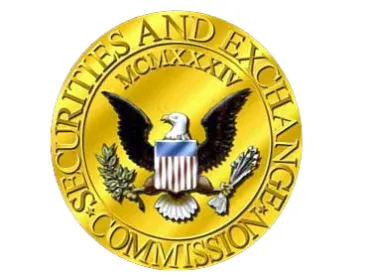Earlier this month, the SEC’s Division of Corporation Finance issued a no-action letter saying that ExxonMobil could exclude a shareholder proposal that called for the disclosure of specific greenhouse gas (GHG) emissions targets – specifically, targets that correspond with goals outlined in the Paris Climate Agreement.
The letter stated that there was “some basis” for Exxon’s view that the proposal could be excluded from the company’s proxy materials under the rule 14a-8(i)(7) exception for ordinary business operations. The letter also said that the request would “micromanage” the company by “seeking to impose specific methods for implementing complex policies in place of the ongoing judgments of management as overseen by its board of directors.”
A no-action letter is an agency response to a company’s request for clarity on whether the company’s decision to omit a shareholder proposal from its proxy materials would violate federal securities laws. If the Division of Corporation Finance grants a no-action request, it means the staff of the SEC will not recommend that the SEC take any enforcement action against the requesting company, based on the facts and representations in the company’s request. Conversely, a denial means that the company is more vulnerable to an enforcement action.
This particular proposal was preceded by the company’s 2019 Energy and Carbon Summary, in which Exxon said it supported the Paris Agreement, but failed to mention the series of climate lawsuits the company continues to face over failure to disclose risks to business posed by climate change, among other things. In its proposal, the shareholder proponents asked for more specific short-, medium-, and long-term GHG targets.
The SEC staff has recently granted similar relief to other companies, allowing them to exclude proposals seeking climate-specific information from their proxy materials. Just last month, the staff reached similar conclusions on shareholder proposals received by Devon Energy Corp. and Chevron Corp. also asking for information about GHG reduction targets. A trend seems to be emerging. If a proposal asks for information about specifics regarding a company’s policy on climate change, the SEC staff is more likely to find that it amounts to corporate “micromanagement.”
However, given the increasing concern about business costs associated with climate change and related catastrophic events, this is not likely the last time Exxon (or any other energy company) will see such a shareholder proposal. For years, energy companies have seen an uptick in shareholder requests for information on company actions related to climate change, such as carbon footprints, GHG reduction goals, and plans for achieving a zero carbon future. Also, many of these proposals are backed by investors with large assets. For example, the Exxon proposal discussed above was backed by investors with $9.5 trillion under management.
Companies should be aware that shareholders can still take advantage of the proxy season to demand that companies provide more information on how the company intends to comply with changing conditions and policies regarding climate change – albeit without as much specificity as shareholders would like perhaps.



 />i
/>i

